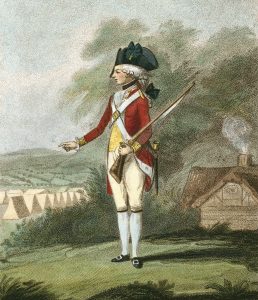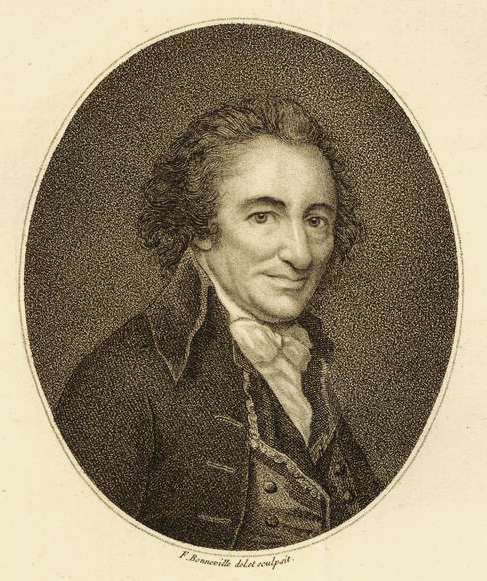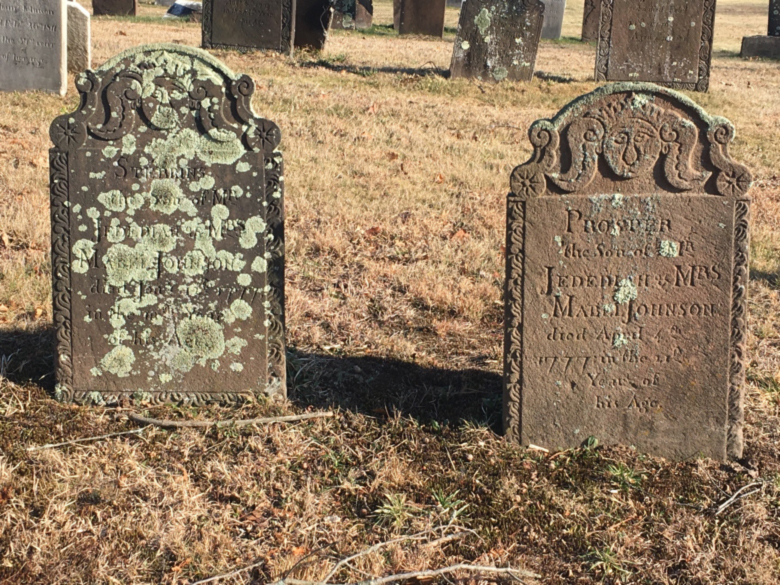Almost every student of the Revolutionary War has heard of Deborah Sampson, the Massachusetts woman who disguised herself as a man and served for over a year as a Continental soldier.[1] As fascinating as her case is, it was exceedingly unusual; although some historians have attempted to prove that many women served in the ranks either clandestinely or openly, there is scant evidence that more than three or four actually did so.[2] In general, one of the rites of enlistment was a physical examination, so the chances of a woman successfully joining an established military unit were slim.
On the American side it was perhaps easier because the military infrastructure was nascent, fragmented among the colonies and communities within them, and evolving as the war progressed. Women who attempted to enlist were nonetheless usually discovered. Lt. William Barton of the 1st New Jersey Regiment wrote a letter in November 1778 describing his own experience of meeting “a young lad” who wished to enlist. He gave money and lodging to the prospective recruit in the home where he was quartered. By the following afternoon a number of circumstances had raised his suspicion, so he called upon another officer to “officiate as Doctor in searching; he did, and soon made the Discovery by Pulling out the Teats of a Plump Young Girl, which caused great diversion.” She was attempting to escape from her family because she’d been forbidden to marry a man she loved. The following morning the officer “ordered the Drums to beat her through the Town with the whores march; they did so which was Curious seeing her dressed in mens Clothes and the whores march Beating.”[3]
On the British side, procedures for recruiting and training soldiers were far more standardized. During the entire eighteenth century, only three women are known to have successfully managed to become British soldiers, none during the American Revolution.[4] The notion of women clandestinely enlisting is a popular one, however, and in fact was equally popular during the era of the American Revolution. So popular, in fact, that the renowned playwright Richard Brinsley Sheridan used it as a plot device in his 1778 play The Camp. And newspapers reported several instances of women attempting to enlist, first during the flurry of recruiting that occurred when it became clear that the American war would be a long one, and again during the massive military buildup after France joined the war.
Newcastle, December 30, 1775. Wednesday last, a good-looking girl, about twenty-seven years old, dressed in mens cloaths, applied to Serjeant Miller, the recruiting officer here for Frazer’s Highland regiment, and desired to be enlisted in that body, which the serjeant agreed to, and gave her a shilling. Her sex, however, was soon after discovered. She said the cause of this act was from a quarrel with her father, whose cloaths she had absconded in: and notwithstanding her sex, she would have no objection to the army, as she thought the exercise not superior to her abilities. She was, however, discharged.[5]

Yesterday a stout woman dressed in mens clothes enlisted in the Highland regiment, under the name of Peter Mitchel, and was sworn before a magistrate: a man came sometime after and claimed her as his wife – she said she was very willing to serve his Majesty, and was much abler than many of the recruits who had enlisted. She was discharged.[6]
Saturday last a young woman in Glasgow, of the name of Gardener, having got herself equipped in the Highland dress, was enlisted in General Fraser’s Highland regiment. Unfortunately her sex was discovered, which has prevented her serving her King and country as a soldier.[7]
We hear from the north, that a few days ago, a servant maid, disguised in men’s apparel, inlisted for a soldier with a recruiting party. After receiving the bounty money, she got leave to go home, under pretence of taking leave of her friends: With the bounty she paid off some debts, and then fled the country.[8]
We hear from Aberdeen, that about five weeks ago a young woman of the name of Black, enlisted herself for a soldier, and received pay ever since, till last week when a woman in a house which she sometimes frequented became amorous of the supposed handsome young lad, and made such advances as brought on a discovery of the recruit’s sex.[9]
The Beginning of last Week, a young Girl, about 17 Years of Age, went from Barrow, near this Town, to Nottingham, and having procured Man’s Apparel, enlisted for a Soldier (being persuaded thereto, as she says, by a Man where she lodged) and that Night lay with the Serjeant but the next Day after being sworn, she was taken to the examining Surgeon, to whom she confessed her Sex, and was discharged. The Man who persuaded the thoughtless Girl to this Frolick, was entrusted by her to exchange the Man’s Cloaths for her own at the Pawnbroker’s, but instead of which he sold them, and decamped with the Money, leaving the Girl in a deplorable Situation, to lament her Credulity.[10]
Extract of a Letter from Plymouth Dock, June 25… “on Sunday last it was discovered that a Woman had enlisted and been for some Time in the 13th Regiment in the Barracks at this Place. One of the Shropshire Militia quartered at Plymouth, a Sweetheart of her’s at Wells, exposed her Sex. She was immediately discharged and a Collection made to carry her home. It is surprising how very soon she learnt her Exercise, having been but three Months in the regiment, and yet expert.”[11]
On Friday last, a young lady of a reputable family went and enlisted herself at Tower-Hill in one of the regiments of guards doing duty there; but upon going through the custom that is usually observed on such occasions, she was under a necessity of discovering her sex, being ordered and compelled to strip herself naked, notwithstanding all her endeavours and entreaties to the contrary. Upon being questioned by the serjeant with regard to the occasion of so extraordinary an occurrence, she gave him the following relation: that her lover was an officer belonging to the regiment in which she had enlisted herself, but that he being for some time gone to America, she had long wished for an opportunity to go to him, and had pitched upon the above method as most conducive to elude the vigilance of her friends, and expedite her design. Upon its being remonstrated to her that it was very uncertain what time she might have gone to America, it depending in a great measure on the progress she might make in learning her exercise, she practically cried that she had been long practicing before she came there, and was in every way qualified to do her duty as a soldier. She is a handsome young woman, is rather stout, and makes a very good appearance as a man.[12]
As intriguing and amusing as all these stories are, they lack the corroboration required to distinguish them from rumor. The accounts are so numerous, and so lacking in other substantiation, that we can only guess whether they’re indicative of real determination among women to enlist or of a social preoccupation with the romantic notion of a woman soldier.
[1] Alfred F. Young, Masquerade: The Life and Times of Deborah Sampson, Continental Soldier (New York: Alfred A. Knopf, 2004).
[2] See Linda Grant de Pauw, “Women in Combat: The Revolutionary War Experience,” Armed Forces and Society 7#2 (Winter 1981), 209-226, and a rebuttal by Janice E. McKenney, “Commentary: ‘Women in Combat’ Comment,” Armed Forces and Society 8#4 (Summer 1982), 686-692.
[3] Robert Fredilington, “A Diversion in Newark: A Letter from the New Jersey Continental Line, 1778,” New Jersey History 105#1-2 (Spring-Summer 1987). The spelling and grammar in the quotations has been modernized for readability.
[4] Elizabeth Ewing, Women in Uniform through the Centuries (London: B. T. Batsford, Ltd., 1975).
[5] The Middlesex Journal, and Evening Advertiser (London), January 4, 1776. Frazer’s regiment was the 71st Regiment of Foot, raised in Scotland for service in America.
[6] Edinburgh Advertiser, January 19, 1776.
[7] Edinburgh Advertiser, February 2, 1776.
[8] Edinburgh Advertiser, March 22, 1776.
[9] Edinburgh Advertiser, April 5, 1776.
[10] Derby Mercury, January 17, 1777.
[11] St. James’s Chronicle (London), June 29, 1778.
[12] Edinburgh Advertiser, July 6, 1779.













6 Comments
Thanks, Don. I appreciate your research and the information. Nancy Loane
Thanks for putting the “female soldier” in perspective, Don. The romantic fantasy flourished in the 19th century and picked up steam again in the late 20th, when women assuming the traditional roles of men became a way of life. Reading history backwards, most textbooks now say something like “women fought too,” often featuring sidebars on Deborah Sampson and/or the mythical Molly Pitcher. This turns history on its head. Yes, women accompanied the troops and did invaluable work, but they received recognition for their labors only from the troops themselves. Often, on marches, soldiers allowed female camp followers to ride in the wagons, a practice that annoyed Washington terribly. “The multitude of women in particular, especially those who are pregnant, or have children, are a clog on every movement,” he wrote on August 4, 1777. On July 4, July 11, August 27, and September 13, 1777, and May 31 and June 19, 1778, and June 7, 1779, he issued orders forbidding women to ride in the wagons. The fact that they continued to do so, thus leading to these multiple repetitions, is a sign that soldiers did show women more respect. At least one women, Sarah Osborn, rode on a wagon for part of the long journey to Yorktown in 1781, showing once again that Washington’s orders were disobeyed. The best way to respect women’s participation in the Revolutionary War is to pay attention to what they actually did. Again, good job in correcting the record!
Don – great article and snapshots of purported female soldier enlistment attempts. As I read stories like yours, I just can’t help comparing modern days to colonial days. Maybe its a solid measure of just how far society has come to “… remember the ladies”.
As you said with the “social preoccupation with the romantic notion of a woman soldier”, how shocked would Founding Era men be to learn that women would become generals in the armed forces? Or even better – fighter jet pilots!
Hi Don,
Thank you for another excellent article. I really enjoy reading the first hand accounts, especially how the women tried to join and how they were “caught”. The article also reminds me of a story how the women defended Fort Plain during the August 2, 1780 raid of Canajohary.
On the morning of August 2, 1780, while the Tryon County Militia were escorting provisions to Fort Schuyler (Stanwix), Joseph Brant, Cornplanter and some roughly 300 Native Americans, attacked the settlements near Fort Plain burning everything possible. With the Tryon County Militia on their way to Fort Schuyler, the story passed from generation to generation by Elizabeth Walrath, who along with other women and children took refugee at Fort Plain, went on to state that the women dressed up in the men’s coats and took up arms fending off the raiders. This story is partially verified in a Letter from Colonel Wemple to General Ten Broeck stating that when arriving at the fort, they found that the fort was not attacked and the women and children were safely inside.
Just finished reading British Soldiers, American War. An amazing insight into the actual lives of a few human beings caught up in a brutal war! Thank you for your continued narrative on the various peoples influenced by a wild and mostly unpredictable conflict.
John Pearson
Thank you very much, John. I’m glad you enjoyed the book – finding personal stories of individual soldiers, wives and families is my favorite sort of research, and you can be assured that there is much more to come!